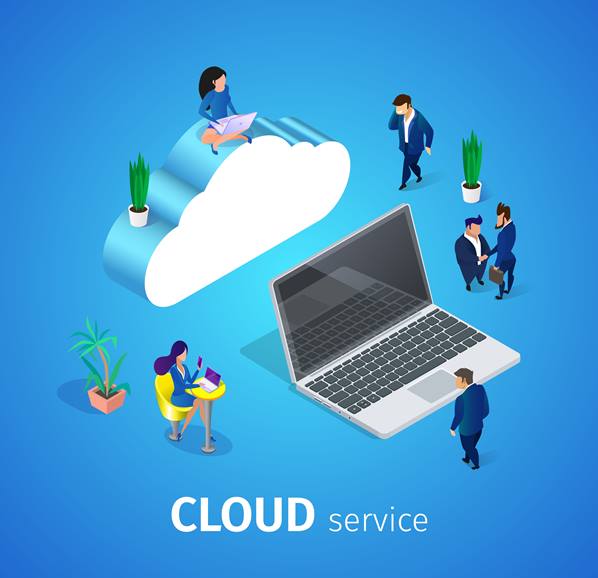 In recent years, businesses have been increasingly turning to cloud technology to improve and streamline their customer service operations. In this article, we’ll look at some of the key benefits and strategies of moving to the cloud.
In recent years, businesses have been increasingly turning to cloud technology to improve and streamline their customer service operations. In this article, we’ll look at some of the key benefits and strategies of moving to the cloud.
By migrating to the cloud, companies can harness its numerous advantages, including flexibility, scalability, and cost savings. This shift has the potential to significantly enhance the overall customer experience, positioning businesses for greater success in today’s competitive landscape.
One key benefit of cloud-based solutions for customer service is their ability to centralize information and processes. With customer data and communication channels consolidated in one accessible location, customer service representatives can easily access relevant information to handle inquiries more efficiently. This streamlined approach not only speeds up response times but also helps foster a more personalized customer experience, as representatives can quickly gain a comprehensive understanding of individual customer needs.
Additionally, the cloud facilitates better collaboration and communication among customer service teams, as well as between teams and other departments. As remote work becomes increasingly common, cloud technology enables geographically dispersed team members to stay connected and share information seamlessly. This level of collaboration ensures consistent and high-quality customer service, regardless of the representative’s physical location or time zone.

Benefits of Moving to the Cloud for Customer Service
Scalability and Flexibility
One of the primary advantages of cloud-based customer service solutions is their scalability and flexibility. As businesses grow or experience fluctuations in demand, cloud systems can easily adapt, ensuring customer service remains timely and efficient. This eliminates the need for expensive and labor-intensive hardware upgrades.
Cost Efficiency
Moving to the cloud can lead to cost savings for businesses of all sizes. Cloud-based customer service platforms often have lower upfront costs than traditional onsite systems, as there is no need to invest in expensive hardware and maintenance. Additionally, subscription-based pricing models allow businesses to pay only for the features and capacity they use, leading to further cost efficiencies.
Ease of Collaboration
Leveraging cloud technology can significantly improve collaboration among customer service teams. Cloud-based systems enable real-time communication and data sharing between team members, regardless of their location. This streamlined collaboration can lead to faster response times and more effective problem-solving, ultimately resulting in a superior customer experience.

Improving Customer Support with Cloud-based Solutions
Omni-channel Support
Cloud-based customer service solutions enable businesses to integrate and streamline support across multiple channels, such as email, phone, social media, and chat. By having a single platform that consolidates customer interactions, support agents can access a comprehensive view of each customer’s history and provide a seamless and personalized experience. This also allows for easier collaboration and knowledge sharing among support teams, resulting in faster and more efficient issue resolution.
Real-time Analytics and Insights
With cloud-based platforms, businesses can gather, analyze, and visualize customer data in real-time. This real-time access to customer support data enables companies to:
- Identify trends and persistent issues
- Monitor agent performance
- Optimize support processes
- Allocate resources efficiently
Additionally, real-time insights can lead to proactive customer service, allowing support teams to address potential issues and anticipate customer needs before they escalate.
Incorporating AI and Chatbots
Cloud-based customer support solutions often include AI-driven tools and chatbots that can streamline and automate interactions with customers. A few potential benefits of using AI in customer support include:
- Providing instant assistance through chatbots, especially for routine queries
- Reducing wait times and boosting agent productivity by handling high volumes of requests efficiently
- Offering personalized recommendations and cross-channel support by analyzing customer behavior and preferences
Incorporating AI and chatbots into a cloud-based customer service strategy can result in faster response times, increased customer satisfaction, and lower operational costs, ultimately enabling businesses to deliver a better overall customer experience.

Security Considerations with Cloud-based Customer Service
Data Security and Privacy
When moving customer service to the cloud, it’s crucial to ensure the security of customer data. Cloud providers generally offer robust security measures, such as encryption and secure authentication protocols. Implementing Cloud Security Posture Management further enhances security by continuously monitoring cloud infrastructure for vulnerabilities and misconfigurations, addressing potential risks before they can be exploited. However, businesses must remain vigilant and implement their security policies as well.
- Choose a reputable cloud provider with a strong track record of data security and privacy.
- Implement role-based access control to limit who can access customer data.
- Monitor and analyze user behavior for any unusual activities that may indicate potential threats.
Compliance with Industry Regulations
To maintain compliance when shifting to cloud-based customer service, consider the following:
- Research your industry’s regulatory requirements and ensure your chosen cloud provider can meet them.
- Regularly update and review data privacy policies and processes.
- Conduct third-party audits of the cloud provider’s data centers to ensure ongoing compliance.
By keeping data security and regulatory compliance in mind, businesses can confidently use cloud-based customer services to deliver exceptional support to their customers.

Choosing the Right Cloud Service Provider
Key Features to Look For
When selecting a cloud service provider for better customer service, it’s essential to consider several key features. These features include:
- Reliability: Ensure that the provider has a consistent uptime to guarantee smooth operations.
- Scalability: As your business grows, you’ll need a provider that can accommodate increasing needs.
- Security: Protecting customer data is vital, so look for robust security measures and compliance certifications.
- Integration: The ability to integrate with your existing systems and tools is necessary for seamless operations.
- Support: Choose a provider with responsive customer support to help address issues and answer questions.
Evaluating Pricing Plans
After identifying potential providers with the necessary features, consider their pricing plans. Comparison of various plans should focus on elements such as:
- Storage Space; Ensure the plan offers sufficient storage for customer data and can be increased as necessary.
- Scalability; Will it be easy to upgrade or downgrade based on your business needs?
- Data Transfer; Analyze any limitations on data transfer, as well as any associated costs.
- Support Services; Identify whether customer support is included or requires additional fees.
Selecting the right cloud service provider should be based on a careful evaluation of key features and pricing plans, ensuring that the provider aligns with your business needs and priorities.
Summary
Moving to the cloud offers numerous benefits for businesses seeking to enhance customer service. With cloud-based services, companies can achieve greater flexibility and scalability, enabling them to adapt more quickly to customer needs.
Moreover, cloud services provide better data accessibility, allowing customer service teams to access vital information from anywhere and offer faster response times. This increased ease of data access translates into more efficient and effective communication with customers.
By moving to the cloud, businesses can reduce their IT infrastructure costs, providing more resources to invest in customer service enhancements. In today’s competitive marketplace, adopting cloud technology is an essential step for companies who want to deliver exceptional customer service and stay ahead of the competition.
Implementing cloud solutions for customer service is both a strategic and practical decision for businesses looking to improve the overall customer experience. Companies should thoroughly research and evaluate potential cloud service providers to ensure they select the best option for their specific needs and objectives. The positive impact on customer service will undoubtedly result in long-term success for businesses that seize the opportunity provided by cloud technology.




